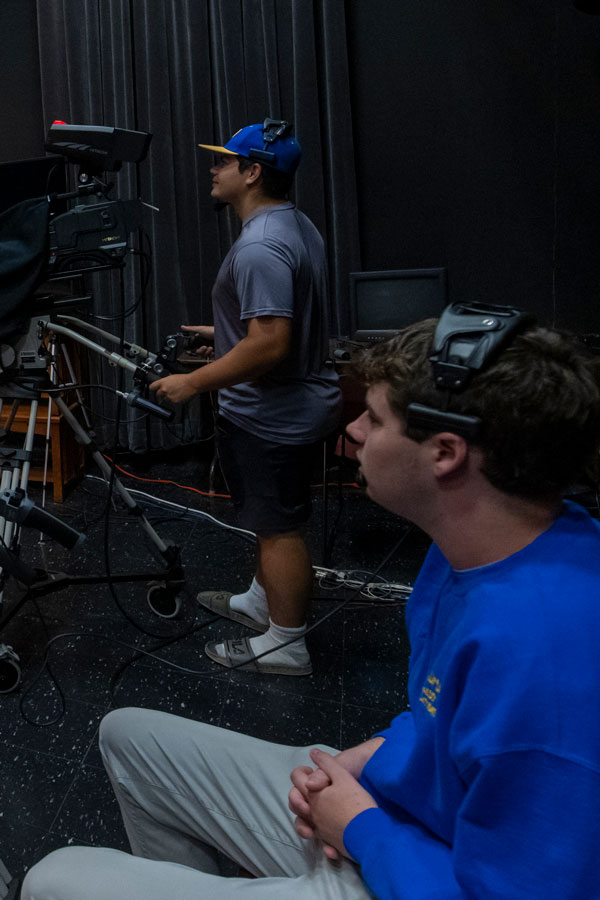
Broadcast Communications - BA
Get hands-on experience in our all-digital facilities to secure your spot in our media-rich world.
Why study broadcast communications at Pitt-Bradford
You’ll get lots of experience in our broadcast communications programs. Help make a television commercial for a local business, produce television and radio programs, or work as a DJ at the campus radio station. Many of our broadcast communications students also intern locally and regionally.
What will I learn?
You'll work on our latest video production gear: our advanced video and audio editing systems and our fully equipped audio production booth. They’ll be the kinds of facilities you'll use when you land your first job. Actually, our facilities may be even better than what you'll be using when you graduate.

What can I do with a degree in broadcast communications?
Once you have your broadcast communications degree, you'll be prepared for many types of positions.
Job titles:
- Announcer
- Director assistant
- Producer
- Production assistant
- Director
- Media sales
- Video editor
- TV news reporter
- News director
- Disc jockey
Employers:
- Television station
- Radio station
- Cable TV company
- Video production house
- Motion picture studio
- Sports team
- Publishing company
- College or university
- Advertising agency
-
COMM 0103
Broadcast JournalismTheories and principles of broadcast journalism with practical experience in writing news stories for radio and television. Analysis of broadcast news program procedures. -
COMM 0202
Radio ProductionTraining in studio operations and procedures. Students will develop and produce public service announcements, commercials, interviews, radio drama, news, and music programs.
More to Know
Our broadcast communications graduates have high-profile careers and have made their mark on the media world. Christine Wolski ’91, a producer for WETA public television in Washington, D.C., earned an Emmy Award for a magazine program she co-produced. Jennifer Lewke ’05, an investigative reporter with WHEC-TV in Rochester, has won several awards, including an Edward R. Murrow Award. Tom Lucas ’93 is a studio director at ESPN.
Program-Related News

Dinner, film screening planned for Native American Heritage Month
One event leading up to visit by Indigenous writer Robin Wall Kimmerer.